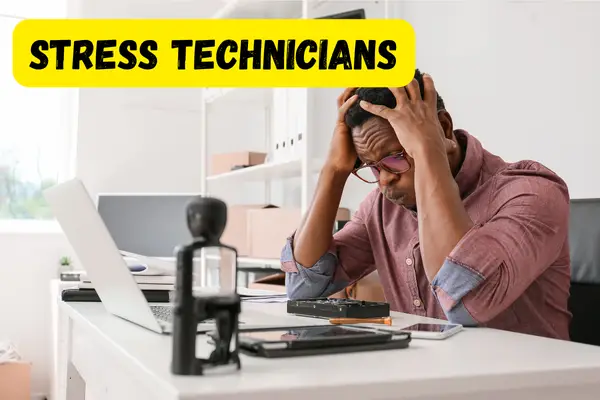In today’s fast-paced world, the term “stress” has become a regular part of our vocabulary. Whether it’s job-related, personal, or even due to environmental factors, stress impacts our lives in numerous ways. To address this growing concern, a specialized profession has emerged: Stress Technicians. These experts play a crucial role in identifying, managing, and alleviating stress through various techniques and tools. But who exactly are Stress Technicians, and why are they becoming increasingly essential in modern healthcare?
Table of Contents
ToggleWhat are Stress Technicians?
Stress Technicians are healthcare professionals trained to assess and manage stress levels in individuals. They use a combination of medical knowledge, psychological understanding, and practical interventions to help people cope with and reduce stress. Their expertise lies in recognizing the physiological and psychological signs of stress and applying appropriate strategies to mitigate its effects.
The Importance of Stress Technicians
With stress being a significant contributor to numerous health issues, including heart disease, hypertension, diabetes, and mental health disorders, the role of Stress Technicians is more important than ever. These professionals help in early detection and prevention of stress-related illnesses, improving overall health outcomes and quality of life for their patients.
The Work of a Stress Technician
The work of Stress Technicians encompasses a variety of tasks, including:
- Assessment and Diagnosis: Using tools like stress questionnaires, biometric measurements (such as heart rate variability), and patient interviews, Stress Technicians can assess the level and impact of stress on an individual. This helps in creating a personalized stress management plan.
- Stress Management Techniques: They employ a range of techniques such as biofeedback, relaxation training, mindfulness, and cognitive-behavioral strategies. These methods help patients learn how to control their physiological responses to stress.
- Education and Counseling: Stress Technicians provide education on stress and its effects, helping individuals understand the importance of managing stress. They also offer counseling to support behavioral changes and coping strategies.
- Monitoring and Follow-up: Continuous monitoring of stress levels and regular follow-ups ensure that the interventions are effective and adjusted as needed.
Training and Qualifications
Becoming a Stress Technician typically requires a background in healthcare or psychology. Many professionals in this field have degrees in nursing, psychology, or allied health sciences, along with specialized training in stress management techniques. Certification programs and continuing education are also crucial for keeping up with the latest research and practices in stress management.
The Future of Stress Technicians
As awareness about the impact of stress on health continues to grow, the demand for Stress Technicians is expected to rise. With advancements in technology, such as wearable devices that monitor stress indicators in real-time, Stress Technicians will have even more tools at their disposal to provide effective care.
Conclusion
Stress Technicians are vital players in the modern healthcare landscape, addressing one of the most pervasive issues of our time. By combining scientific knowledge with practical interventions, they help individuals lead healthier, more balanced lives. As we continue to navigate the complexities of modern life, the expertise of Stress Technicians will undoubtedly become increasingly indispensable. Their role not only alleviates individual stress but also contributes to the overall well-being of society.
Author
-

My name is Pooja Yadav. I have over 5 years of experience in the tech and tech education industry. I specialize in digital marketing, social media optimization, and helping others learn about technology. I'm passionate about staying up-to-date with the latest trends and sharing my knowledge with others.
View all posts

